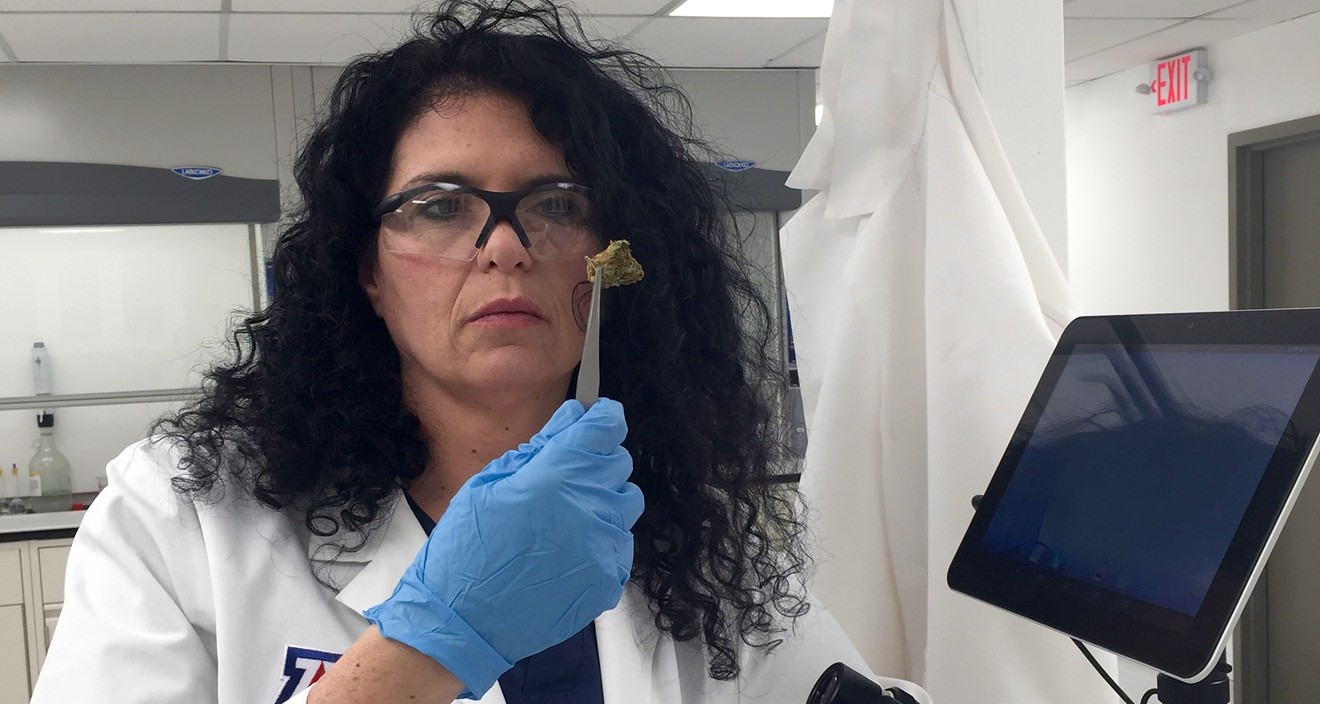After nearly a decade, the first American study to determine the medical benefits of cannabis in treating post-traumatic stress disorder is nearing completion.
Dr. Sue Sisley and the Scottsdale Research Institute need only approve five more patients by mid-October to hit their goal of 76 trials.
It’s been a long run to the finish line. Since 2009, when she started the process to have her study approved, Sisley has battled with government organizations like the U.S. Food and Drug Administration, the Drug Enforcement Administration, and even the University of Arizona.
The ordeal has been a case study on how government agencies can stifle scientific research for years.
There are two things you need to know about Sisley: She’s a scientist and she’s resilient. Her battle for research has warranted national support and attention from cannabis advocates, but publicity was never her goal.
“People think I’m an activist, but all we ever wanted to be were scientists,” Sisley said. “We didn’t want to be activists, but the government forced us into that role.”
Sisley plans on having preliminary data as early as next summer. Her goal is to get the information out as soon as possible, as long as it’s compelling enough.
Whether the data shows benefits from cannabis use or not, Sisley doesn’t really care.
“I don’t value cannabis,” she said. “I value objective data. That’s why we’re in this.”
The research consists of a triple-blind study using flower with various consistencies of THC and CBD. Patients use up to 1.8 grams per day, record the effect, and are evaluated by a third party. With the time and care Sisley has put into this study, she prides herself on its validity.
“Unlike Big Pharma, where they selectively suppress data that doesn’t make their study drug more favorable, we put in all the good and the bad … for the public to scrutinize,” she said.
However, cannabis quality has been an ongoing concern of Sisley’s. The University of Mississippi is the only grower licensed to cultivate cannabis for medical research — and Sisley has spent much of the past 10 years trying to change that.
Two years ago, the DEA announced it would begin approving more cultivation applications due in part to an impending lawsuit from Sisley and her partner, the Multidisciplinary Association for Psychedelic Studies (MAPS).
Since then, they’ve received more than two dozen applications, but have ignored every one of them.
“Whenever the DEA makes an announcement without a timetable, you know that it’s probably never gonna happen,” she said. “That’s just the way federal government works.”
Spurred by the DEA’s refusal to “make good on their pledge to the public,” Sisley has begun preparing yet another lawsuit.
Between the DEA’s refusal to approve applications and its persistence in keeping cannabis a Schedule I drug, Sisley said the agency has been conducting a “continuous attack on scientific study.”
Rather than having access to the cultivation technology and quality in the private sector, Sisley has no choice but to take what the University of Mississippi sends for the study. She describes the federally sanctioned cannabis as a homogeneous green dust, adding that the government provides very little information about what’s in it.
One of the reasons she applied for a license to grow is so that she can provide different strains, or phenotypes as she calls them, with varying amounts of terpenes and cannabinoids. Without that kind of sophistication, cannabis research remains in the Dark Ages.
“We’re at a point now where we need access to unique phenotypes,” she said, “where we can really experiment with different profiles and figure out which ones are best for which illnesses and we just, well, we don’t have crap."
[
{
"name": "Air - MediumRectangle - Inline Content - Mobile Display Size",
"component": "18478561",
"insertPoint": "2",
"requiredCountToDisplay": "2"
},{
"name": "Editor Picks",
"component": "16759093",
"insertPoint": "4",
"requiredCountToDisplay": "1"
},{
"name": "Inline Links",
"component": "17980324",
"insertPoint": "8th",
"startingPoint": 8,
"requiredCountToDisplay": "7",
"maxInsertions": 25
},{
"name": "Air - MediumRectangle - Combo - Inline Content",
"component": "16759092",
"insertPoint": "8th",
"startingPoint": 8,
"requiredCountToDisplay": "7",
"maxInsertions": 25
},{
"name": "Inline Links",
"component": "17980324",
"insertPoint": "8th",
"startingPoint": 12,
"requiredCountToDisplay": "11",
"maxInsertions": 24
},{
"name": "Air - Leaderboard Tower - Combo - Inline Content",
"component": "16759094",
"insertPoint": "8th",
"startingPoint": 12,
"requiredCountToDisplay": "11",
"maxInsertions": 24
}
]












